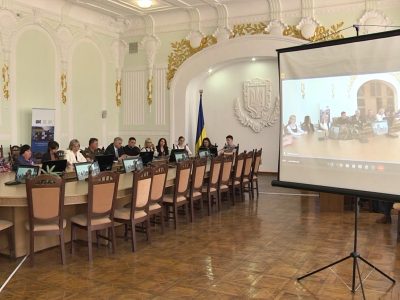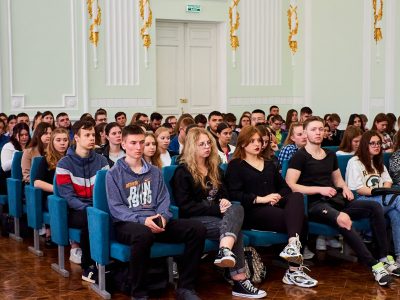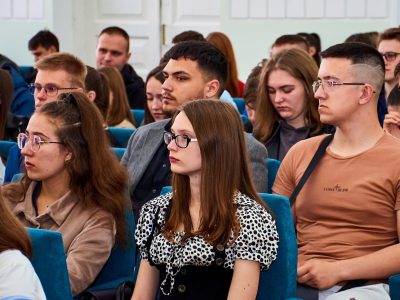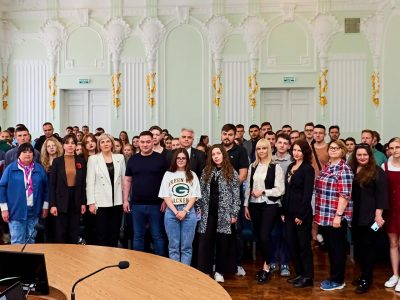UJE at the international seminar "Importance of NGO activities amid major wars in Ukraine and Israel: Exchanging experience on the way to victory"
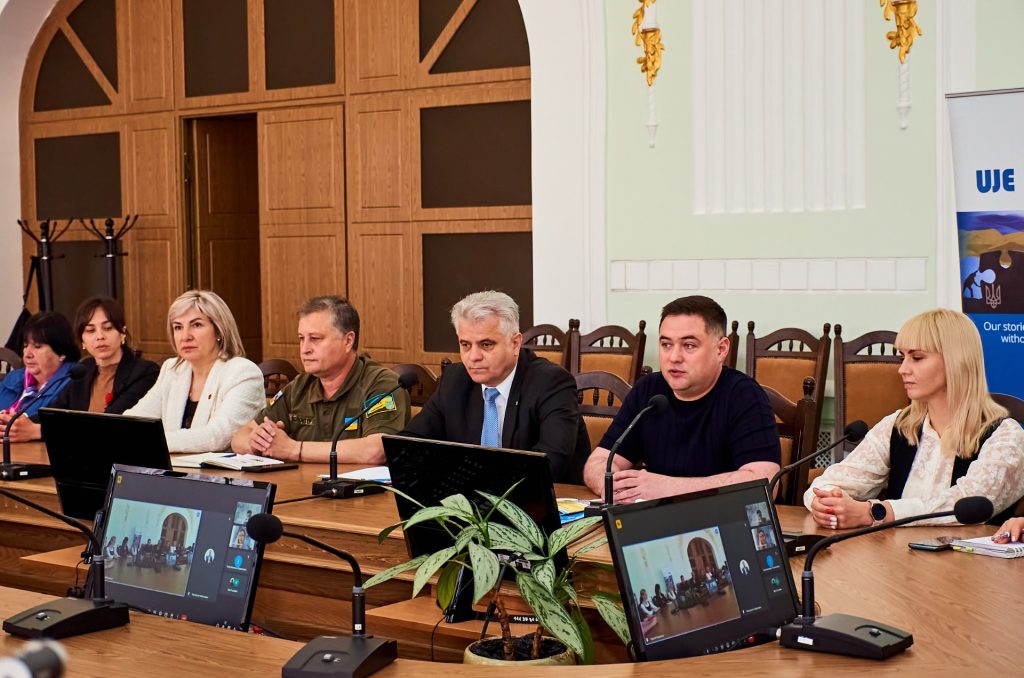
On 8 May 2024, Ukrainian-Jewish Encounter held the international seminar "Importance of NGO activities amid major wars in Ukraine and Israel: Exchanging experience on the way to victory" in partnership with the Uman State Pedagogical University (USPU). Participants included the Israeli NGO "Israeli Friends of Ukraine," the Polish Foundation "International Psychological Assistance Center," and the Ukrainian Charitable Foundation "Victory Way 777."
Every year, 8 May is marked as the Day of Remembrance and Reconciliation to honor the memory of WWII victims. In Ukraine, the backdrop of this solemn day is a full-scale war, which has been raging for more than two years now since Russia invaded Ukraine on 24 February 2022. Why has the well-known slogan "Never again!" failed? Why is a genocidal war being waged so close to the geographical center of Europe? Was it possible to prevent it? How can it be stopped, and what role can international NGOs play in this cause? These issues and the need for cooperation and experience exchange between such organizations were discussed during the seminar in Uman.
The meeting was opened by Ihor Kryvosheia, acting head of the Department of World History and director of the USPU's Polish Cultural and Educational Center, who moderated the event. He welcomed the participants, introduced the speakers, and outlined the importance of the topic.
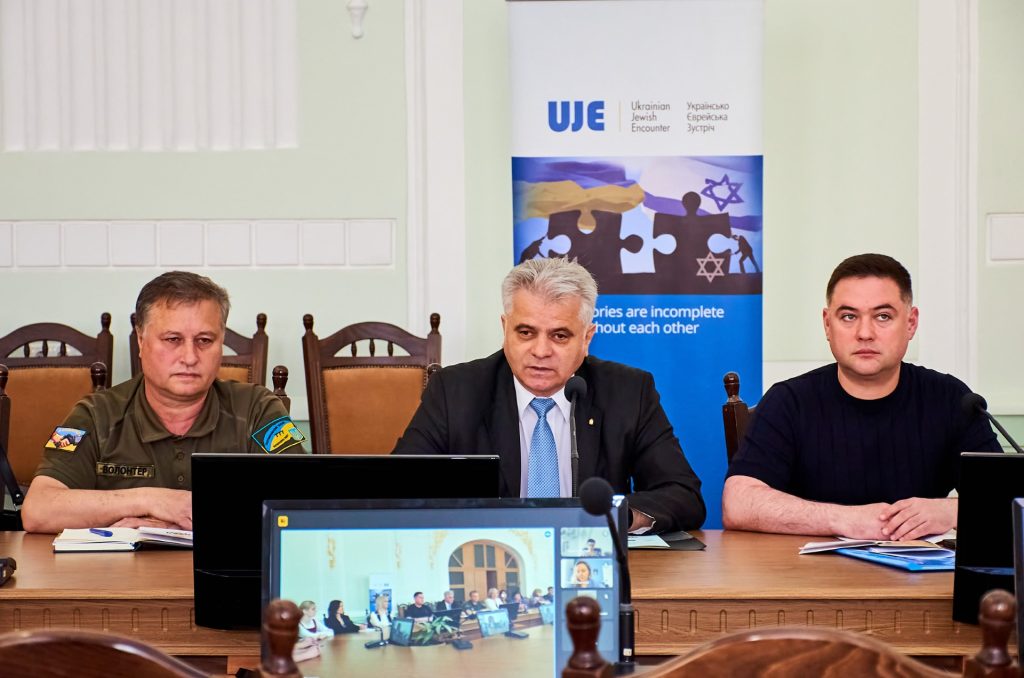
Volodymyr Mykolaiko, vice-rector for international relations and strategic development at the USPU, explained to the audience why, amid a major war, universities are essential in providing support to the students and staff, developing science, and educating well-informed and proactive citizens. He also spoke about the USPU's activities since the beginning of the full-scale invasion, the help its employees and students provide to the Armed Forces of Ukraine and people affected by Russian aggression, and cooperation with NGOs in this field.
Vladyslav Hrynevych, Jr., regional manager of UJE's office in Ukraine, emphasized that the activities of NGOs are especially important in wartime. He spoke about the significance of educational activities, noting how crucial it is to inform international partners about the history of Ukraine's state-building, national identity, the multiethnic character of Ukrainian history and culture, and the inviolability of international norms and rules of conduct. He also provided details about UJE's activities before and during the war in Ukraine.
Ivan Kuzmenko, director of the charitable foundation "Victory Way 777," said that volunteers act as mediators between the military and those citizens who help the army in whatever way they can. He described his foundation's activities since its inception in 2014 and after the full-scale invasion, as well as cooperation with local authorities and numerous Ukrainian and foreign NGOs. Kuzmenko mentioned the difficulties associated with the decreasing aid flow and bureaucratic procedures.
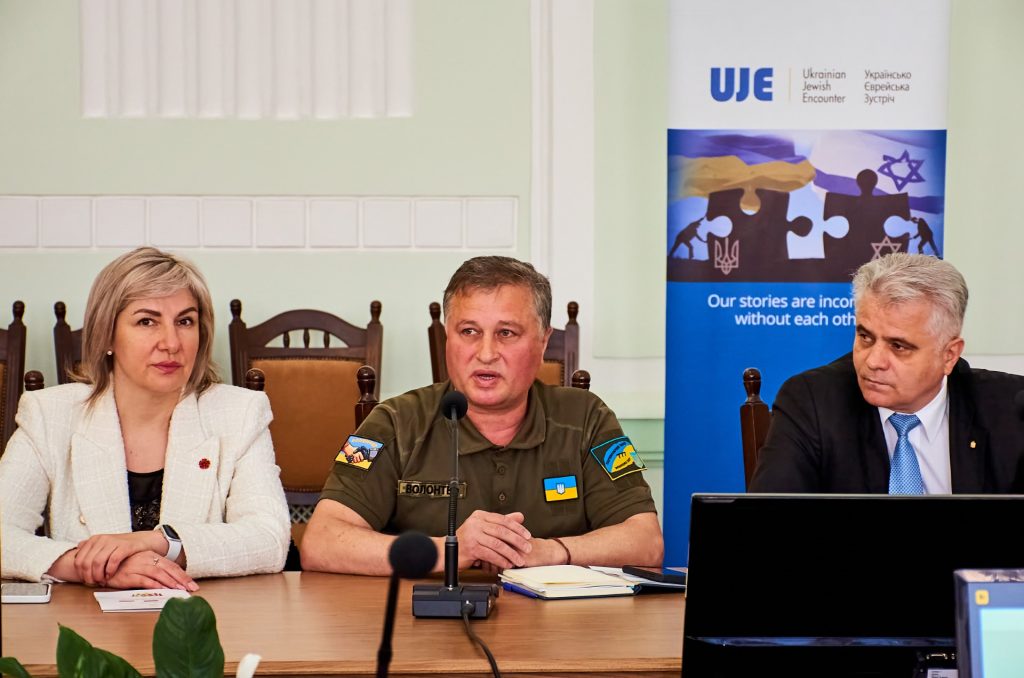
Vyacheslav Feldman, co-founder of Israeli Friends of Ukraine, spoke about the origins of his NGO in 2014 and its activities aimed at strengthening relations between Israel and Ukraine, as well as between Ukrainians and Jews, by promoting an effective cultural dialogue and increasing Israeli awareness about the current situation in Ukraine. He commented on the attitude of Israeli citizens towards Ukraine, noting that it changed dramatically after the beginning of the full-scale invasion as the number of NGOs dealing with Ukraine, particularly in culture, history, education, cooperation development, and aid provision, increased.
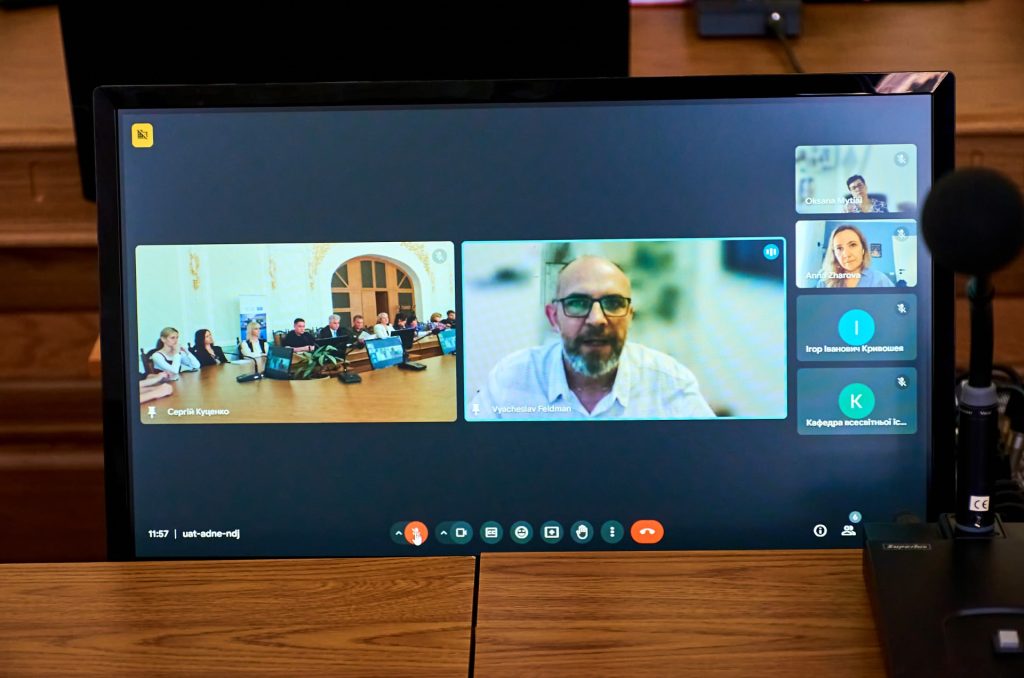
Anna Zharova, co-founder of Israeli Friends of Ukraine, recalled the reaction of Israeli society to the beginning of the full-scale war in Ukraine and the role played by her organization and many other Israeli NGOs in supporting and helping Ukraine. According to her, the countries that have survived the war should join their efforts to help each other and enter the international arena to address various issues.
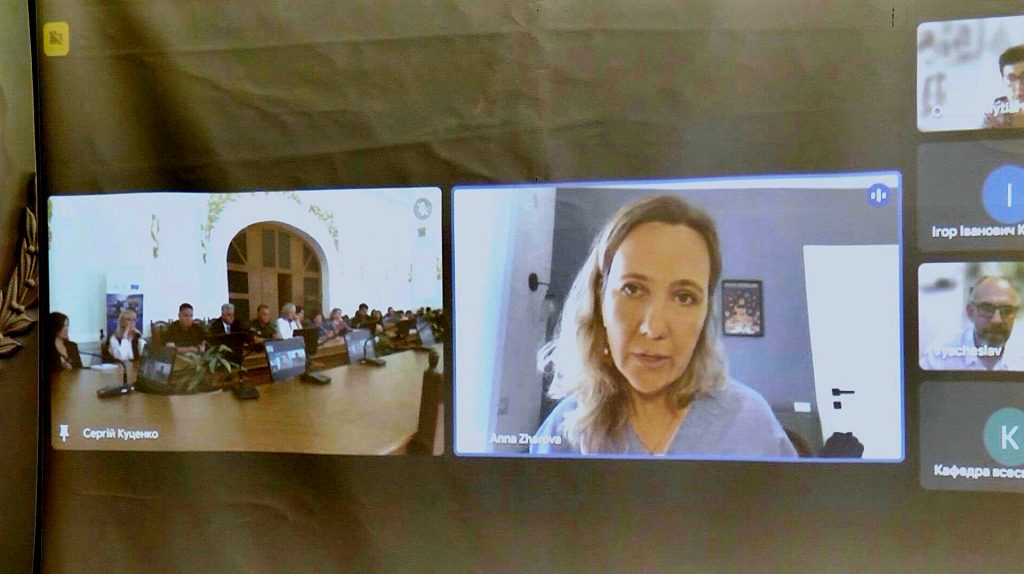
Oksana Mytiai, head of the Polish Foundation "International Psychological Assistance Center," noted that, unlike government organizations, NGOs have more opportunities for rapid response to urgent situations. She described the quick reaction of her foundation, the civilian assistance it provided to refugees from Ukraine, its aid to the Armed Forces of Ukraine in the first days of the full-scale war and later, as well as the obstacles the foundation encountered in its activities.
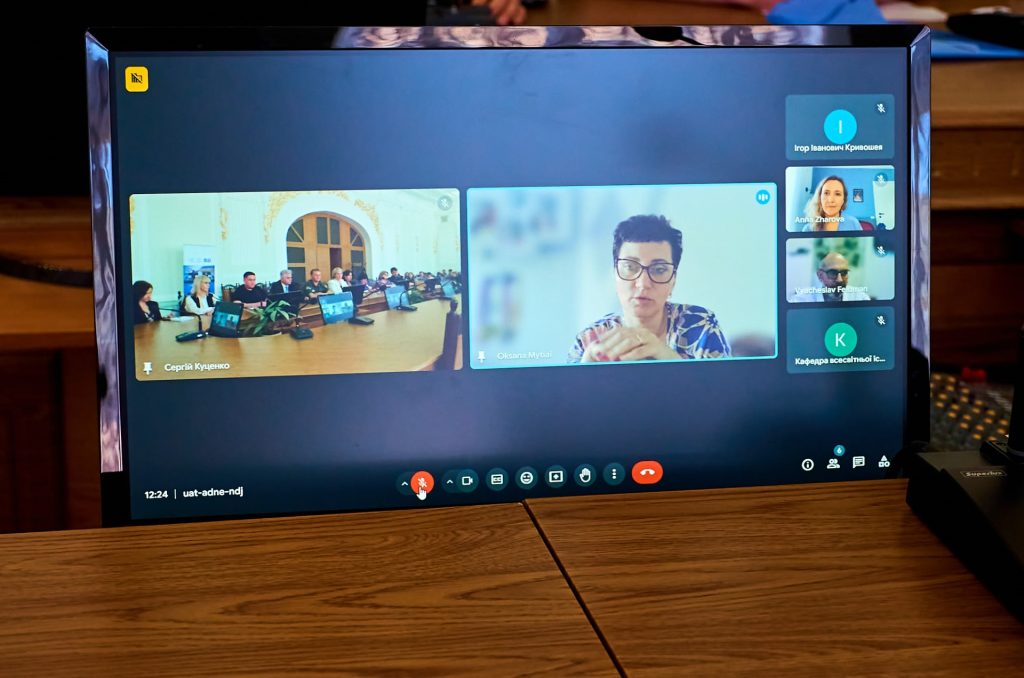
Olga Skus, Associate Professor at the USPU's Ukrainian History Department, thanked the participants for their engagement and help and expressed her belief that, by joining forces, we will reach the end of this war and achieve victory over evil. The USPU's Faculty of History has been constantly involved in volunteer activities since the first days of the Russian attack in 2014 and has set up a volunteer center involving students and teachers. Summing up, Skus noted that Ukraine's history is multifaceted and multidenominational. It cannot be imagined without the Jews and Poles throughout centuries, just as it is impossible to imagine the history of Poland and Israel without the Ukrainian people.
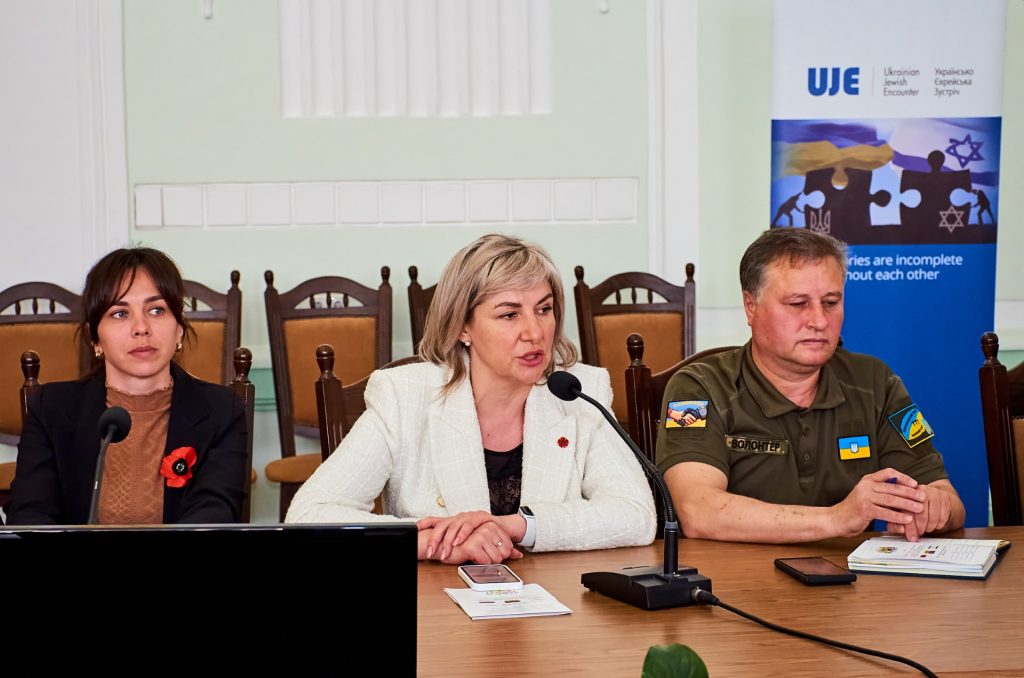
The seminar ended with a minute of silence in honor of the warriors who laid down their lives defending Ukraine. There are 112 defenders of Ukraine among the graduates and students of the USPU's Faculty of History, of whom ten were, unfortunately, killed, and one is missing.
Regional Office of the Ukrainian Jewish Encounter (UJE) in Ukraine







